Latest News
06 May 2020
Dutch public in favour of limited relaxation of coronavirus measures

Dutch people believe that any relaxation of measures to control the coronavirus should be limited, in order to prevent the healthcare system becoming overstretched. They also think that the measures should not be allowed to sow division: there is no support for lifting restrictions for specific groups.
06 May 2020
TU Delft students share ventilator design for international use
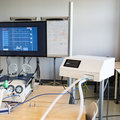
In a very short period of time, students involved in OperationAIR have successfully developed an emergency ventilator for coronavirus patients. Following the necessary test procedures, the design of the AIRone – including all related documentation – has now been released online so that other countries and initiatives can also benefit from it.
30 April 2020
Investment of 14 million for better use of micro-organisms
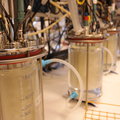
28 April 2020
Mechanical ventilator to Guatemala
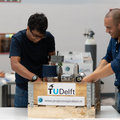
The researchers of Project Inspiration have made all of the designs for their mechanical ventilator available worldwide. In this way, the team hope to reduce the shortage of ventilators in the Netherlands and abroad. In addition, a test model has been prepared, and it will soon be sent to Guatemala.
28 April 2020
TU Delft to launch online survey of preferred exit scenarios on 29 April

TU Delft researchers will be asking people in the Netherlands on how they would prefer coronavirus measures to be relaxed. From 29 April, anyone will be able to make their preferences known at www.tudelft.nl/covidexit.
27 April 2020
TU Delft researchers gain new insights into Vermeer’s Girl with a Pearl Earring

Scientific research into the world-famous painting by Johannes Vermeer, known as the 'Girl with a Pearl Earring', has yielded new insights. TU Delft researchers played an important role in making discoveries about the brushwork, the use of pigments and how Vermeer built up his painting with various layers of paint.
24 April 2020
Royal Honor 2020 Prof. Richard Goossens

Richard Goossens, Professor of Physical Ergonomics in the Faculty of Industrial Design Engineering (IDE), has been made a Knight of the Order of the Netherlands Lion in Vlaardingen. Because of the coronavirus, the official presentation will take place later in the year.
24 April 2020
TU Delft and NS study the impact of the coronavirus crisis on travel behaviour
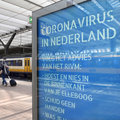
22 April 2020
TU Delft supports COVID-19 ResilientSociety platform
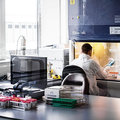
20 April 2020
Microorganisms work together to survive high temperatures
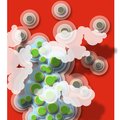
Delft researchers demonstrate that microorganisms can work together and help each other and their future generations survive and replicate at high temperatures.
